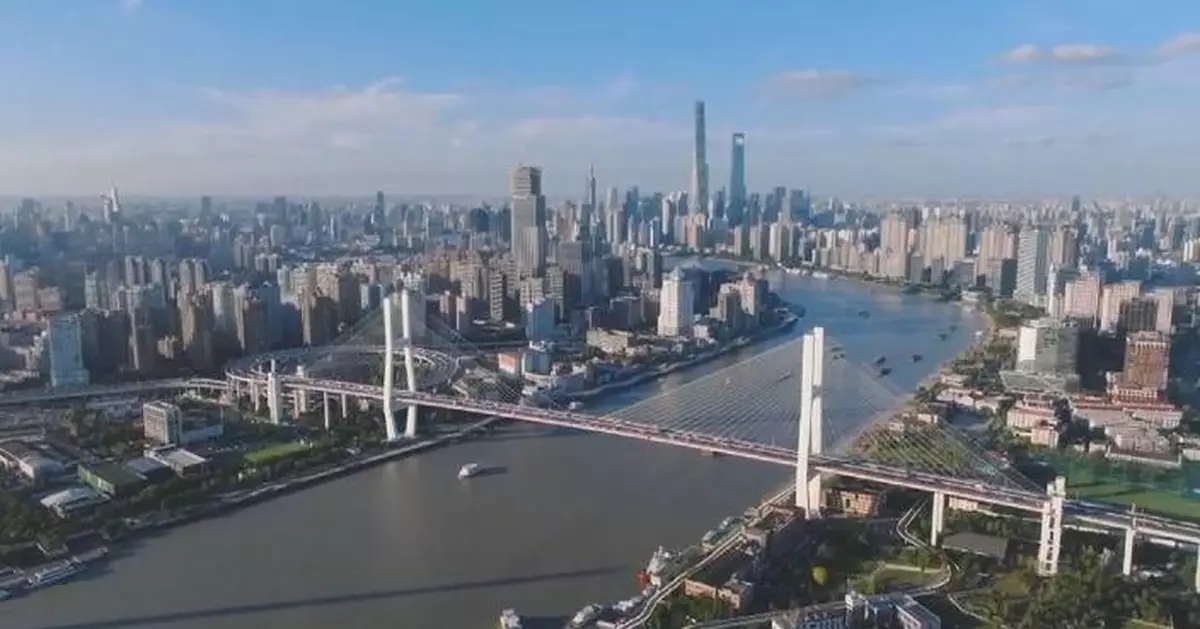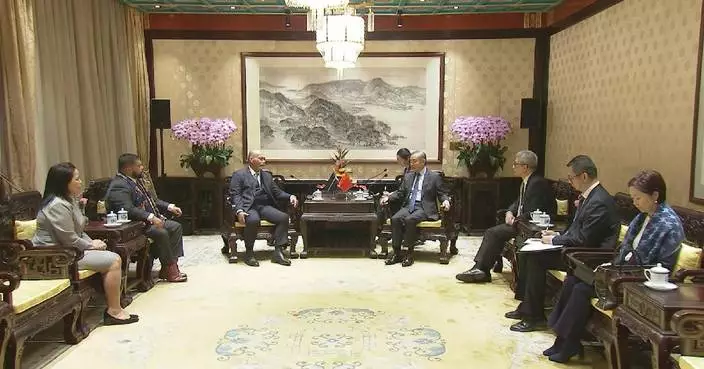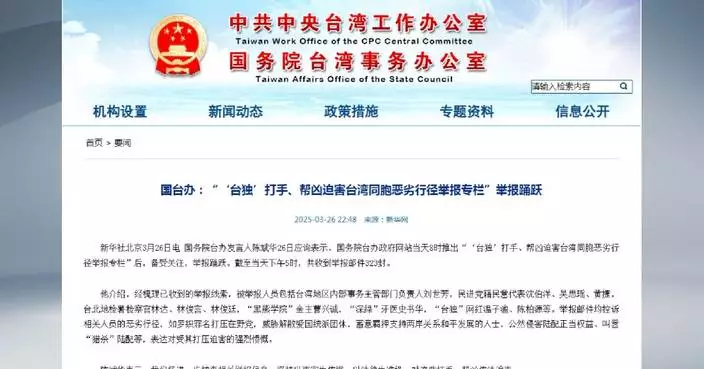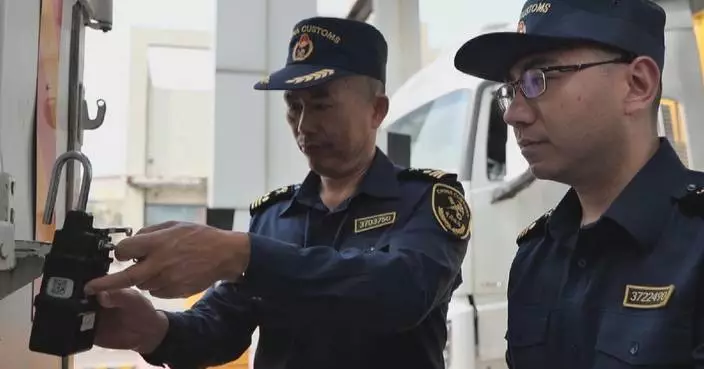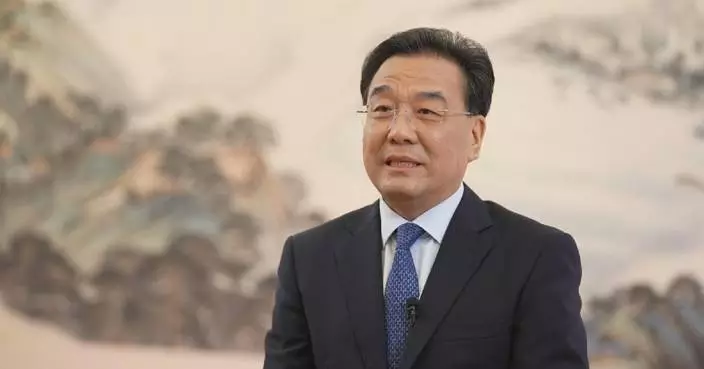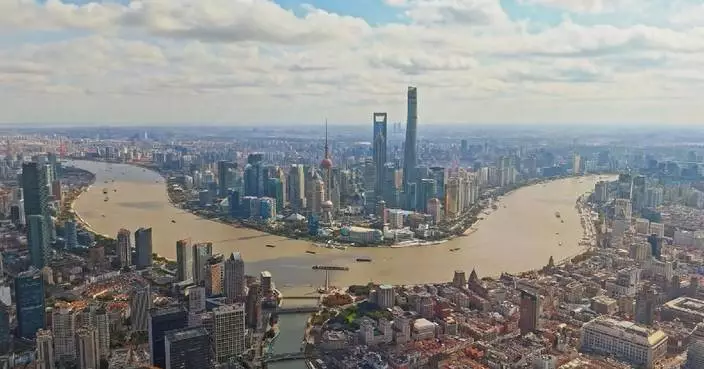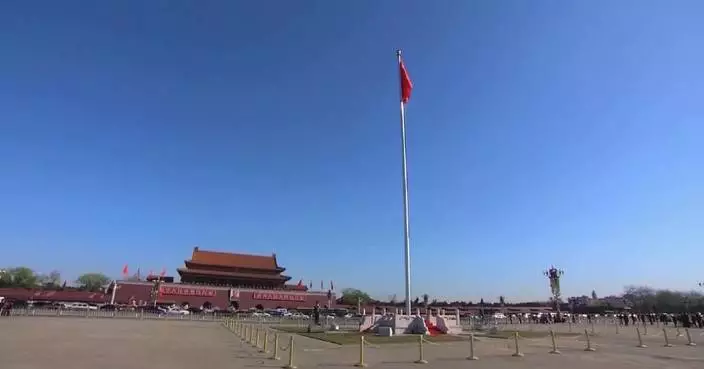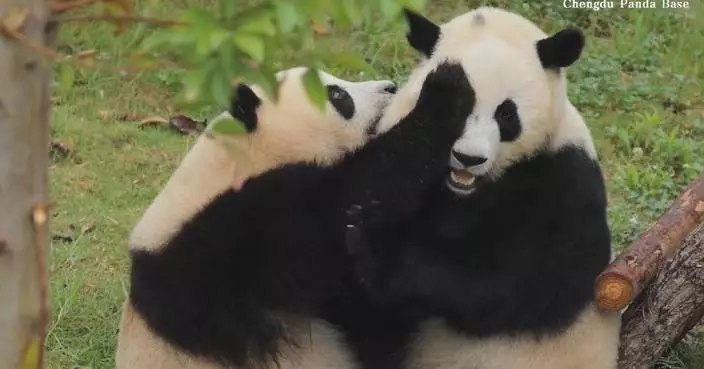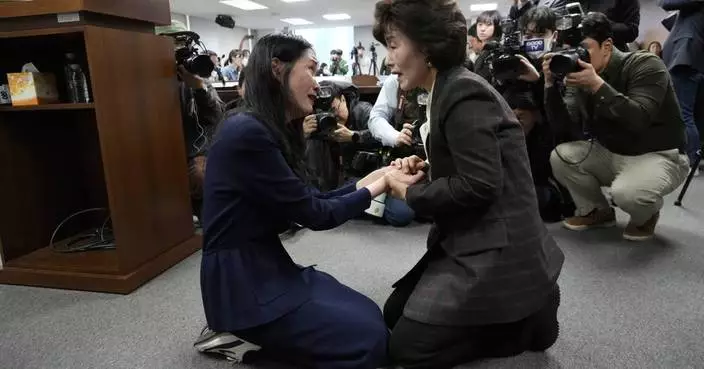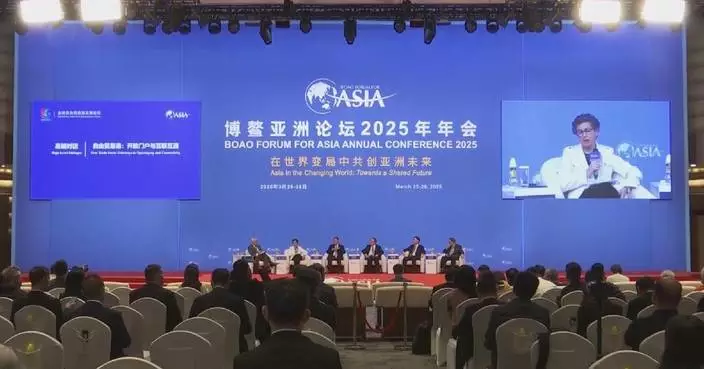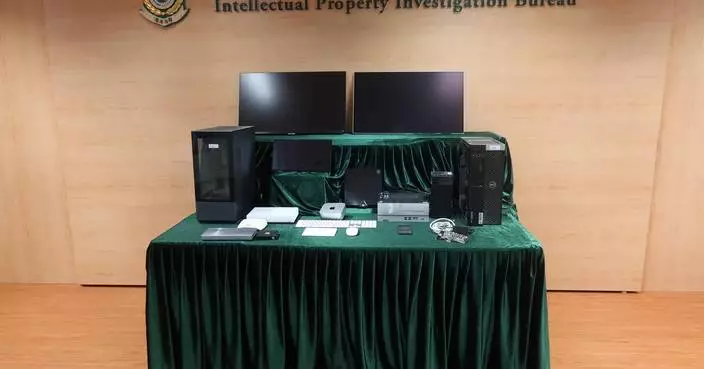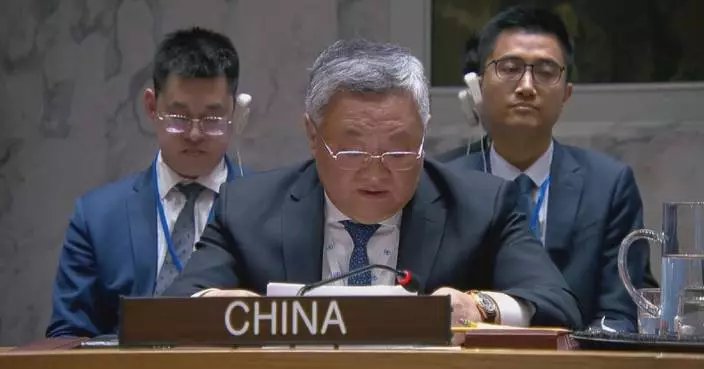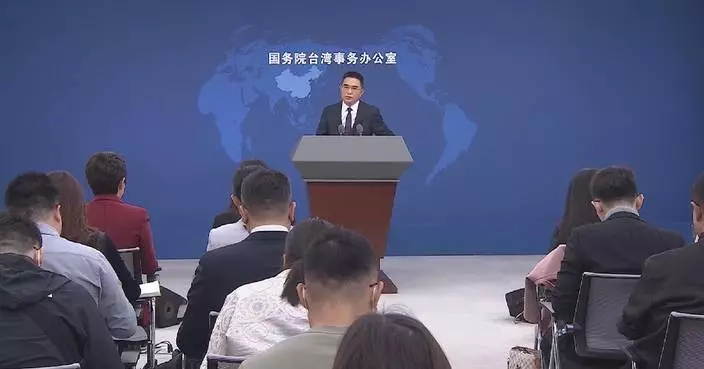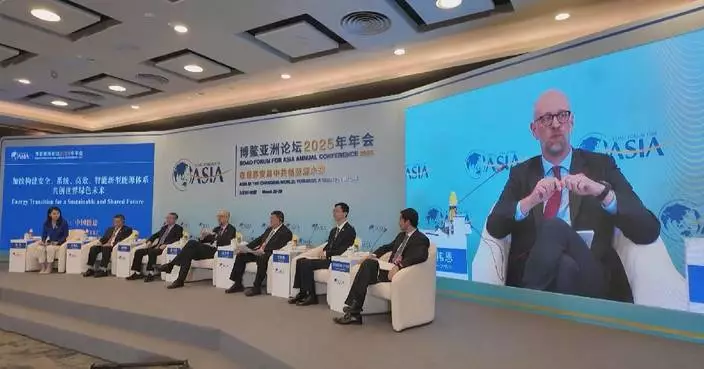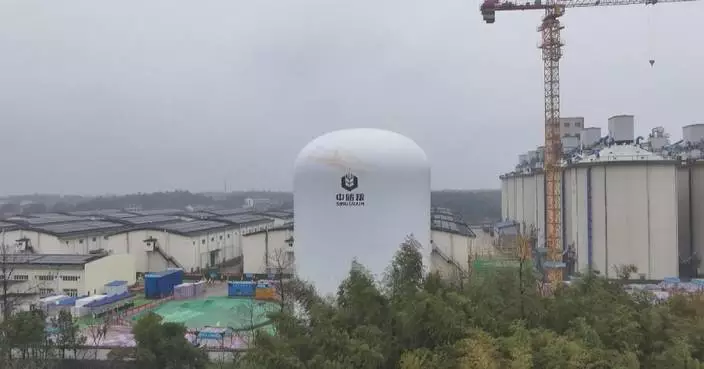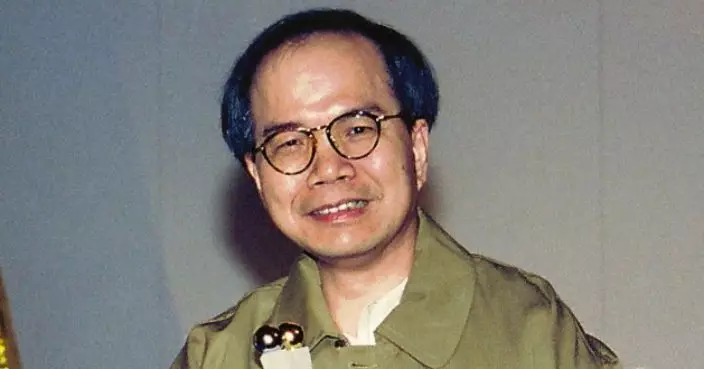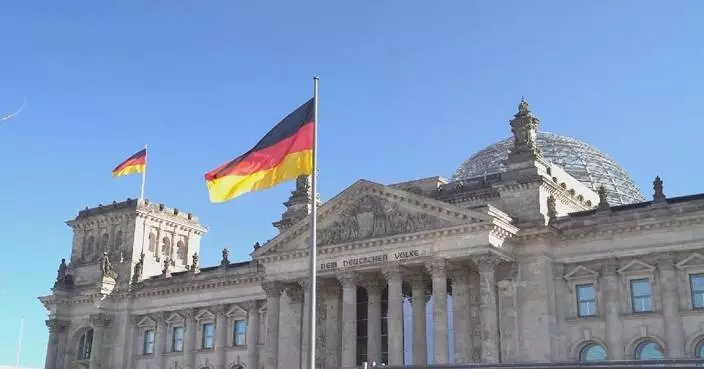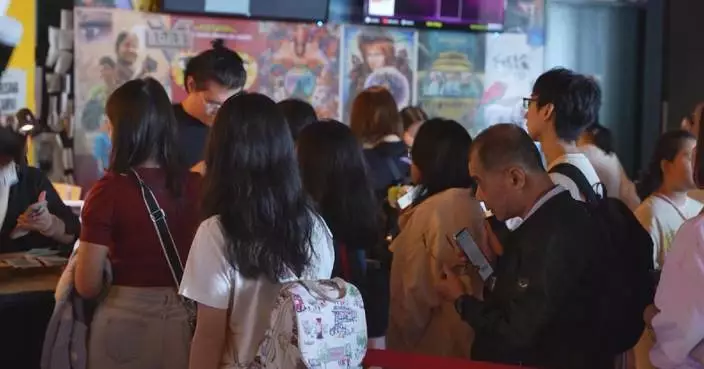China's efforts to better balance the supply and demand sides of its economy and a robust business ecosystem have convinced foreign investors to stay in the Chinese market, as they see vast potential for the emergence of new growth drivers of the world's second largest economy.
Jens Eskelund, president of the European Union Chamber of Commerce in China and also Maersk's chief representative for the greater China area and Northeast Asia, and Denis Depoux, global managing director of global consulting firm Roland Berger, both attended this year's China Development Forum in Beijing. The high-profile event, taking place from March 23 to 24, saw the attendance of around 720 attendees, including entrepreneurs, government officials, experts and representatives from international organizations from China and abroad, at Sunday's opening ceremony.
During an exclusive interview with China Global Television Network (CGTN), Eskelund said China's consumption growth in the first two months of the year sent a positive signal that domestic demand is picking up in China.
"I think one of the big challenges right now -- because as you rightly say, we are actually seeing consumption growth, and I think when we look at the first two months of the year, consumption grew by 4 percent, which is quite respectable, year on year. However, we are seeing still that growth in manufacturing output is continuing to grow faster than consumption growth. We need to see that there's a better balance between supply and demand. I think the extent to which China will succeed in creating better conditions for foreign and domestic companies will depend on restoring and finding that balance between supply and demand," said Eskelund.
Depoux, also speaking to CGTN, mentioned Chinese innovation and said that foreign enterprises are seeking to expand investment in China, in large part due to the robust supply networks that span a multitude of industries.
"Maybe in the last three years, we have understated the importance of the Chinese economy, the importance of Chinese innovation. And maybe we need to invest even more. A lot of companies now are not only here for the markets. They're not only here for the global supply chain element. They're here because they want to capture some of the Chinese ecosystem. They want to be part of an ecosystem that is vivid. Now AI may not be the super good example because of this separation of the dataset and all the restrictions, but all the Chinese AI models are almost open source. So, it means that they're also used by other models already today. So, I think that shows different routes for growth and different engines for growth," said Depoux.
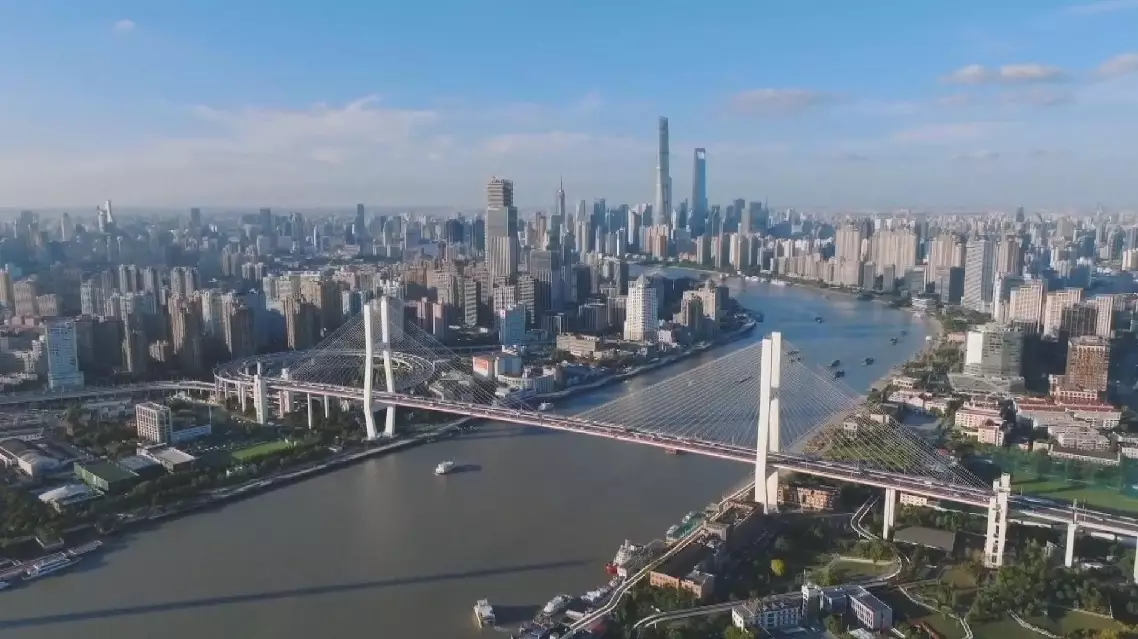
Int'l firms upbeat about China's consumption sector, robust business ecosystem
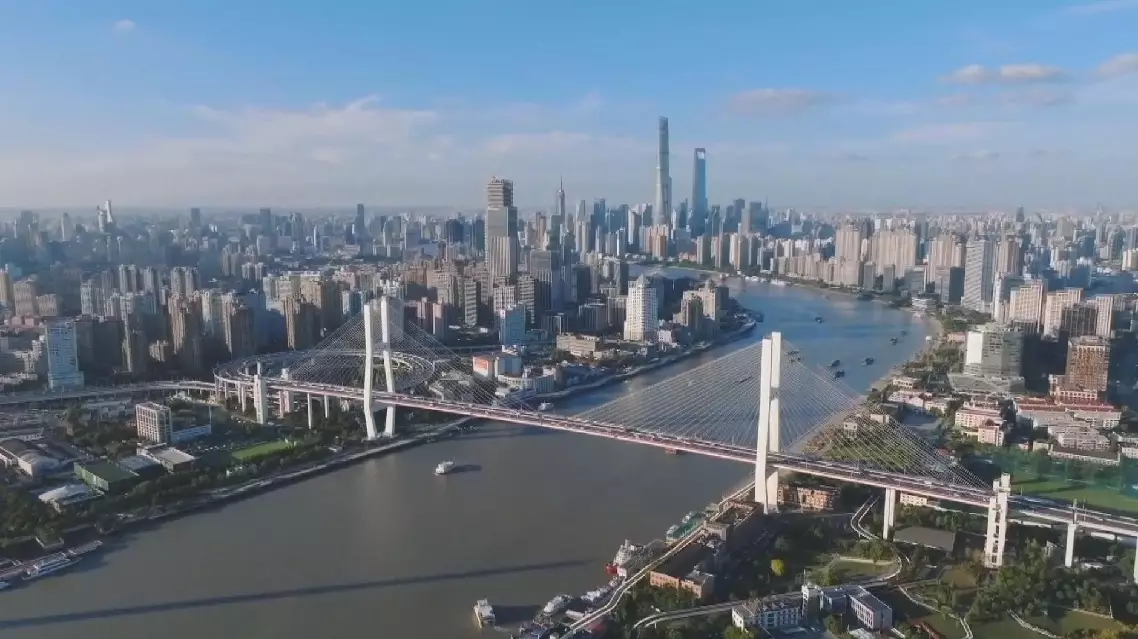
Int'l firms upbeat on China's growing consumption, robust business ecosystems
It's impossible to build a system of governance that ensures artificial intelligence (AI) systems always operate and police themselves in alignment with both human and machine well-being without the participation of China, American columnist Thomas L. Friedman said in an article on Tuesday.
Friedman, a three-time Pulitzer Prize winner and the author of "The World Is Flat: A Brief History of the Twenty-First Century," attended the China Development Forum 2025 held on March 23 and 24 in Beijing.
Based on what he saw and heard during the event, Friedman published an article in the New York Times titled "What I'm Hearing in China This Week About Our Shared Future" on Tuesday.
"There is an earthshaking event coming — the birth of artificial general intelligence (AGI). The United States and China are the two superpowers closing in on AGI — systems that will be as smart or smarter than the smartest human and able to learn and act on their own," the article reads.
Friedman cited an M.I.T. Technology Review report on the "16 humanoid robots" that danced on stage during China's televised Spring Festival gala this year which read: "Clad in vibrant floral print jackets, they took part in a signature ... dance, twirling red handkerchiefs in unison with human dancers."
Friedman wrote in his column that "In their day job, these robots work assembling electric vehicles. Dancing was just their hobby."
"The advances that China has made on AI in just the past year have made it absolutely clear that Beijing and Washington are now the world's two AI superpowers," Friedman wrote.
He mentioned a recent report by Morgan Stanley describing China's dominance over the West in the humanoid robot industry, saying the country is home to a majority of the top-listed companies in this sector.
Noting AI systems and humanoid robots offer so much potential benefit to humanity, Friedman warned they could also be hugely destructive and destabilizing if not embedded with the right values and controls.
He repeatedly stressed the importance of collaboration between the U.S. and China in AI.
"Because what Soviet-American nuclear arms control was to world stability since the 1970s, U.S.-Chinese AI collaboration to make sure we effectively control these rapidly advancing AI systems will be for the stability of tomorrow's world," Friedman wrote.
"China has greatly narrowed the gap with us and surpassed the other democracies. This can't be done without Beijing. So guess who's coming to dinner. It's a table for two now," he said.
Friedman wrote in the article that "Once AGI arrives, if we are not assured that these systems will be embedded with common trust standards, the United States and China will not be able to do anything together."
He pointed out that in this case, neither side will trust anything they trade with the other, because AI will be in everything that is digital and connected, including cars, watches, toasters, chairs, implants, and notepads.
"So if there is no trust between the U.S. and China and each of the two countries has their own AI systems, it will be the TikTok problem on steroids. A lot of trade will just grind to a halt, with only soybeans for soy sauce sold to each other," Friedman wrote, saying "It will be a world of high-tech feudalism."
Friedman said he was taken with a speech by Israeli historian Yuval Noah Harari during the conference, who said that "We should build more trust between humans before we develop truly superintelligent AI agents. But we are now doing exactly the opposite. All over the world, trust between humans is collapsing. Too many countries think that to be strong is to trust no one and be completely separated from others. If we forget our shared human legacies and lose trust with everyone outside us, that will leave us easy prey for an out-of-control AI."
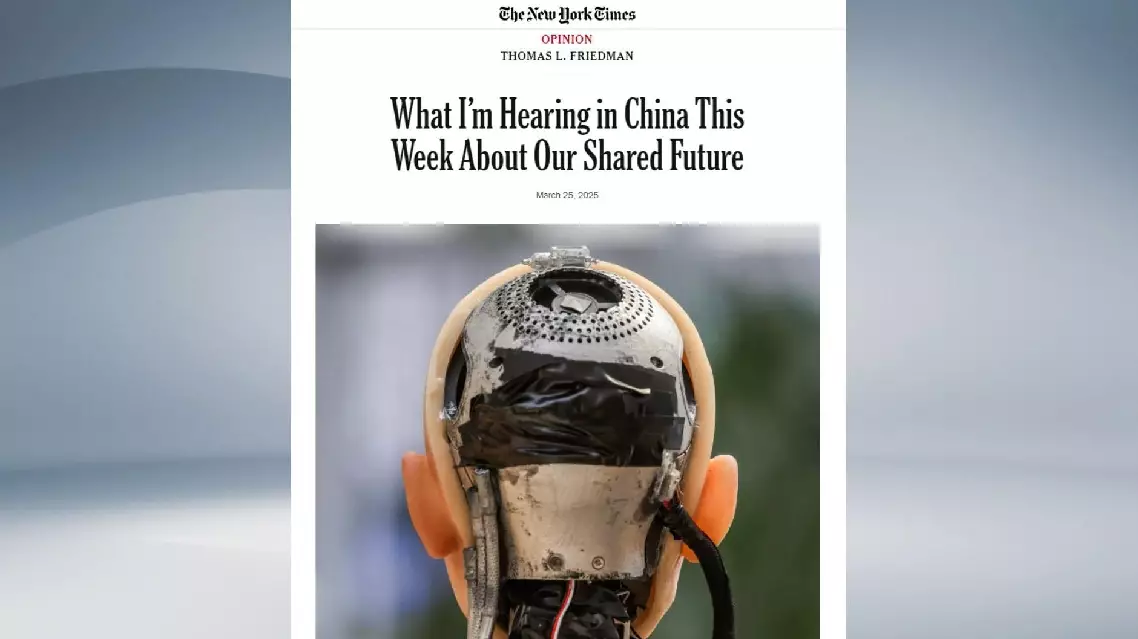
Global AI governance cannot happen without China: American columnist




